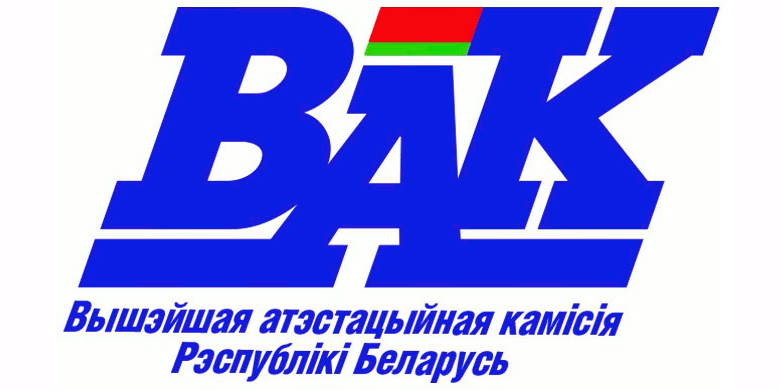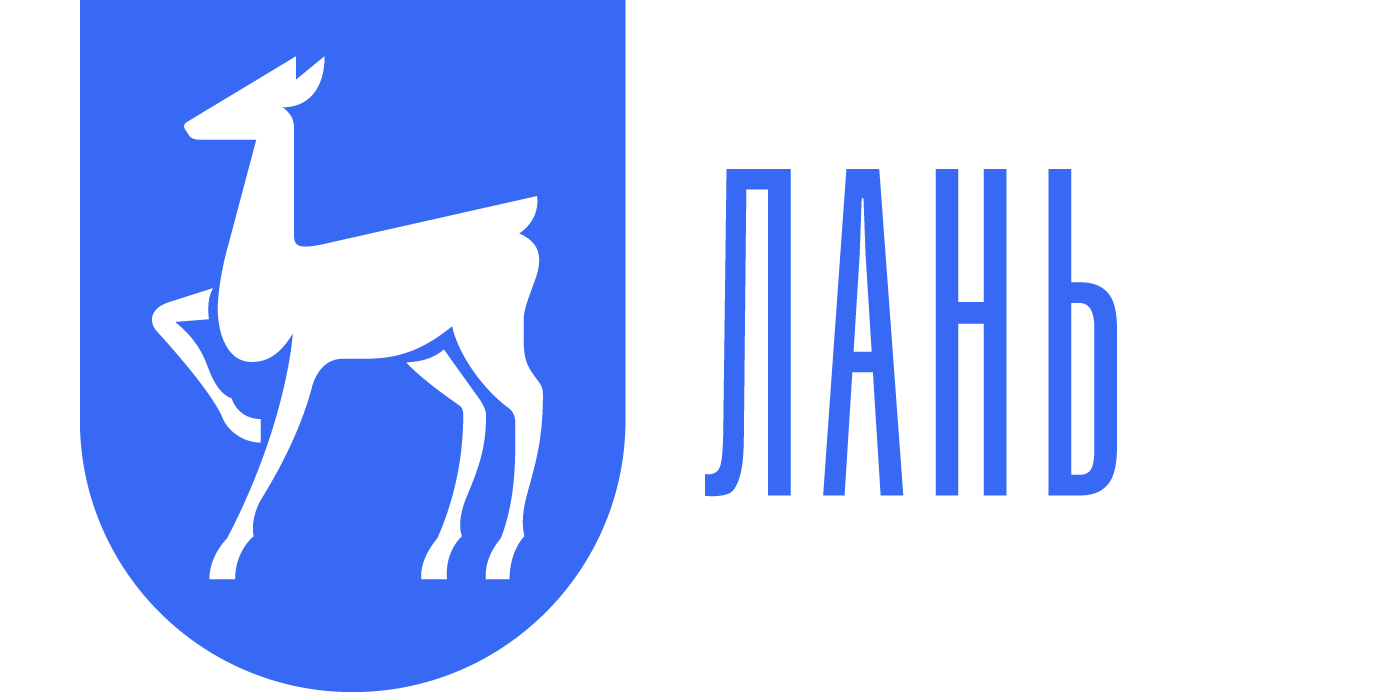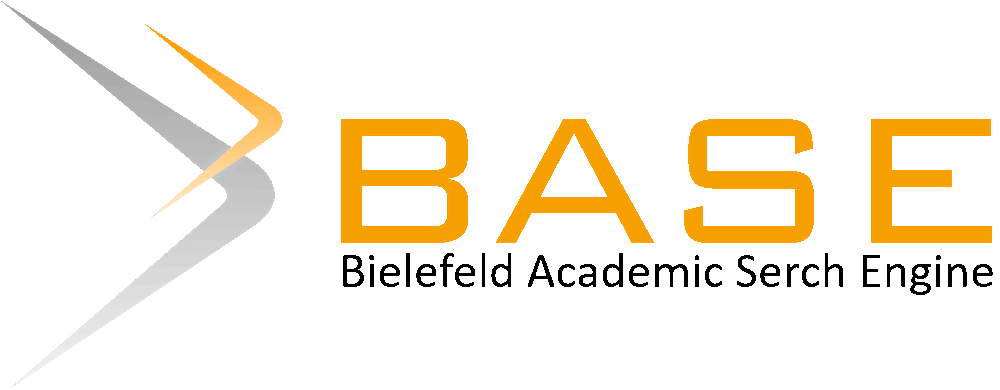Information culture in education : scientific landscape of foreign studies
Keywords:
Information Culture, Information Literacy, systematic review, PRISMA methodology, foreign dissertations, scientific landscape, key concepts and theoriesAbstract
Objektive: The aim is to study the scientific landscape of foreign dissertation researches, the subjects of which are related to information culture in education; to identify the specificity of definitions and interpretations of the concepts of «Information Culture», «Information Literacy» in the pedagogical context; to study the key concepts and theories that foreign colleagues rely on in their research; to identify gaps in foreign studies from the position of developing a scientific and methodological system for the development of information culture of a teacher of vocational education.
Materials and methods. In order to actualize the topic of our research, this article presents the results of the analysis of the full texts of foreign doctoral dissertations for the period from 1990 to 2024 (the search was carried out using the ProQuest Dissertations and Theses database), conducted using some elements of the PRISMA methodology, designed to prepare a systematic review. Dissertations were analyzed based on the criteria we developed. Content analysis of sources and comparative method were also used.
Results. The study established the dynamics of the growth of research interest in the problem: after sporadic works in the 1990s and early 2000s, there is a significant increase in the number of defended dissertations since 2015. The dominance of the term «Information Literacy» in the foreign academic discourse on this topic has been revealed. Its content is revealed mainly through the standards of the American Library Association (ALA) and the Association of College and Research Libraries (ACRL), in particular ACRL Standards (2000) and, in recent years, ACRL Framework (2016), emphasizing conceptual thresholds and metacognitive aspects. The concept of «Information Culture» as a separate, clearly defined construct is much less common in the analyzed works. The range of theoretical and methodological foundations of foreign studies is systematized. It is found that the authors rely on constructivist and sociocultural learning theories (J. Bruner, L.S. Vygotsky), the concepts of critical information literacy (J. Elmborg), lifelong learning, B. Bloom's taxonomy, self-efficacy theory (A. Bandura), the concepts of social and professional capital, the theory of communities of practice (E. Wenger), as well as specific models, such as «Seven Facets of Information Literacy» (Ch. Bruce). It is stated that the main attention in foreign dissertations is paid to the formation of information literacy in students (different levels of education) and the role of librarians in this process. The issues of developing complex scientific and methodological systems of information culture development (as a phenomenon that includes not only knowledge and skills, but also values, motivation, behavioral norms in the information environment) for teachers of professional education remain an insufficiently researched area in the foreign dissertation landscape of the period under consideration.
Conclusion. The purpose of the research has been achieved. The gaps in foreign dissertation research from the position of developing a scientific and methodological system of developing information culture of a teacher of vocational education have been revealed. Despite the considerable attention to the Information Culture / Literacy of students and other categories of students, complex models and systems aimed at the formation and development of information culture (including its axiological, motivational, and reflexive components) in teachers of vocational education are insufficiently presented.
References
Кулакова, Е. Н. Систематическое обзорное исследование литературы по методологии scoping review: история, теория и практика / Е. Н. Кулакова, Т. Л. Настаушева, М. В Кондратьева // Вопросы современной педиатрии. – 2021. – № 20 (3). – С. 210–222. – https://doi.org/10.15690/vsp.v20i3/2271.
Doyle, Ch. S. Development of a model of information literacy outcome measures within National Education Goals of 1990 / Ch. S. Doyle. – Northern Arizona University, 1992. – 193 p. – Published by ProQuest LLC.
Beile O'Neil, P. M. Development and validation of the Beile Test of Information Literacy for Education (B-TILED) / P. M. Beile O'Neil. – Florida : University of Central Florida, 2005. – 271 p. – URL: https://stars.library.ucf.edu/etd/530 (date of access: 18.03.2025).
Selematsela, D. N. Strategies in Information Literacy Instruction in Academic Information Services / D. N. Selematsela. – University of Johannesburg, 2005. – 172 p. – Published by ProQuest LLC.
Jackson, M. Policy and Practice in the Development of «A» Level Students' Information Literacy / M. Jackson. – Newcastle : University of Northumbria, 2006. – 175 p. – Published by ProQuest LLC.
Scharf, D. An intervention and assessment to improve information literacy / D. Scharf . – New Brunswick ; New Jersey : Rutgers The State University of New Jersey, 2013. – 290 p. – Published by ProQuest LLC.
A Progress Report on Information Literacy: An Update on the American Library Association Presidential Committee on Information Literacy: Final Report // Association of College and Research Libraries. – 1989. – URL: https://www.ala.org/acrl/publications/ whitepapers/progressreport (date of access: 18.03.2025).
Anderson, A. L. Conceptualization and practice of information literacy instruction in community colleges / A. L. Anderson ; Iowa State University. – Ames, Iowa : Iowa State University, 2016. – 119 p. – Published by ProQuest LLC.
Flood, P. A. Critical thinking skills and in-formation literacy skills: Discerning online information among high school students / P. A. Flood. – Lynchburg : Liberty University, 2015. – 134 p. – Published by ProQuest LLC.
Houth, W. I. Information Literacy: A Comparative Analysis of Instructional Treatment and Plagiarism Reduction / W. I. Houth. – Arizona : University of Phoenix, 2017. – 197 p. – Published by ProQuest LLC.
Schachter, D. Bridging the gap between theory and practice: critical information literacy teaching in Canadian higher education / D. Schachter. – The University of Edinburgh, 2019. – 273 p. – URL: https://era.ed.ac.uk/bitstream/handle/1842/36071/ (date of access: 18.03.2025).
Roberson, E. C. Community college composition faculty in information literacy assessment: A qualitative phenomenological exploration / E. C. Roberson. – Arizona : University of Phoenix, 2016. – 167 p. – Published by ProQuest LLC.
Taylor, P. D. Promoting Information Literacy through Teacher – School Library Media Specialist Collaboration / P. D. Taylor. – Minnesota : Walden University, 2015. – 195 p. – URL: https://scholarworks.waldenu.edu (date of access: 18.03.2025).
Tragert, J. P. Analyzing Information Literacy Skills in Marketing Department Learning Outcomes: A Pilot Study / J. P. Tragert. – Massachusetts : Endicott College, 2022. – 138 p. – Published by ProQuest LLC.
ACRL Standards: Information Literacy Competency Standards for Higher Education = Стандарты компетенций в области информационной грамотности // C&RL News. – 2000, March. – Pp. 207–215. – URL: https://crln.acrl.org/index.php/crlnews/article/ viewFile/19242/22394 (date of access: 18.03.2025).
ACRL Framework: Framework for Infor-mation Literacy for Higher Education = Рамки информационной грамотности для высшего образования : Filed by the ACRL Board on February 2, 2015 ; Adopted by the ACRL Board, January 11, 2016. – URL: https://www.ala.org/acrl/standards/ilframework (date of access: 18.03.2025).
Adeyiga, V. J. The Relationship Between Information Literacy and Global Learning / V. J. Adeyiga. – Florida : Florida Interna-tional University, 2017. – 160 p. – URL: https://digitalcommons.fiu.edu/etd/3395 (date of access: 18.03.2025).
Dean, C. J. Identifying and Facilitating a Community of Practice in Information Literacy in Higher Education / C. J. Dean. – Robert Gordon University, 2020. – 297 p. – URL: https://openair.rgu.ac.uk (date of access: 18.03.2025).
Johnson, B. Investigating Students’ Experiences With Information Literacy to Understand How Behaviors and Dispositions Impact Application of IL Concepts / B. Johnson. – Buffalo : State University of New York, 2024. – 273 p. – Published by ProQuest LLC.
Kester, B. N. Investigating Chinese Graduate International Students’ Experiences With Information Literacy / B. N. Kester. – University of Florida, 2024. – 182 p. – Published by ProQuest LLC.
Sacharow, S. B. Information Literacy: A Pathway to Success for Florida College Learners / S. B. Sacharow. – Florida : Florida Atlantic University, 2019. – 141 p. – Published by ProQuest LLC.
Duke, D. Two-Session Information Literacy Program Effectiveness for Rural First-Year Undergraduates / D. Duke. – Minnesota : Walden University, 2020. – 162 p. – URL: https://scholarworks.waldenu.edu (date of access: 18.03.2025).
Hebert, H. S. Incoming Online Graduate Student Information Literacy Knowledge and Self-Efficacy: A Mixed-Methods Study / H. S. Hebert. – Tennessee : Middle Tennessee State University, 2024. – 163 p. – URL: https://jewlscholar.mtsu.edu/server/api/core/bitstreams/ 3c71bc60-a68e-42c0-84b2-da154671e8b0/content (date of access: 18.03.2025).
Golton, L. A. Building Professional Capital: Teachers Information Literacy Practices Using Twitter / L. A. Golton. – Manchester : University of Manchester, 2020. – 241 p. – Published by ProQuest LLC.
Michaud, M. E. Information Literacy in the First Year of Higher Education: Faculty Expectations and Student Practices / M. E. Michaud. – Oregon : Portland State University, 2016. – 168 p. – https://doi.org/10.15760/etd.3074.
ISTE Standards. – URL: https://iste.org/standards (date of access: 18.03.2025).
AASL Standards Framework for Learners. – URL: https://standards.aasl.org /framework/ (date of access: 18.03.2025).
McGrath, L. High School Teachers’ Perceptions of Student Information Literacy Competency Skills, Levels of Teacher Librarian Collaboration, and Teacher Experiences of Collaboration with School Librarians in the Mountain West: A Mixed Methods Study / L. McGrath. – Idaho : Northwest Nazarene University, 2024. – 356 p. – URL: https://www.researchgate.net/publication/381352869 (date of access: 18.03.2025).
Nabors, S. Examining Information Literacy Skills Instruction within Inquiry Learning Environments / S. Nabors. – Carrollton : University of West Georgia, 2019. – 210 p. – Published by ProQuest LLC.
Tran, J. T. Q. T. Secondary Teachers’ Per-ception of Information Literacy Skills and Their Instruction in the Classroom / J. T. Q. T. Tran. – Los Angeles : University of California, 2022. – 124 p. – Published by ProQuest LLC.
Bruce, Ch. S. Seven Faces of Information Literacy : Towards inviting students into new experiences / Ch. S. Bruce. – Adelaide Auslib Press, 1997. – 50 p. – URL: https://www.researchgate.net/publication/239229387_The_Seven_Faces_of_Information_Literacy (date of access: 18.03.2025).
Carrington, A. The Padagogy Wheel / A. Carrington // Education Technology Solu-tions. – 2016. – № 6 (June). – URL: https://educationtechnologysolutions.com/2016/06/ padagogy-wheel/ (date of access: 18.03.2025).
Формирование надпрофессиональных компетенций в процессе непрерывного профессионального образования : метод. Пособие / Е. Л. Касьяник [и др.] ; под ред. В. Н. Голубовского. – Минск : ИВЦ Минфина, 2020. – 247 с.
Nahapiet, J. Social Capital, Intellectual Capital, and the Organizational Advantage / J. Nahapiet // Academy of Management Review. – 1998. – № 23 (2) (April). – DOI: 10.2307/259373.
Elmborg, J. Critical Information Literacy: Definitions and Challenges / J. Elmborg // Wilkinson, C. Transforming Information Literacy Programs: Intersecting Frontiers of Self, Library Culture, and Campus Community / C. Wilkinson, C. Bruch ; Association of College & Research Libraries.– 2012. – Vol. 64. – Pp. 75–95. – URL: https://iro.uiowa.edu/esploro/outputs/bookChapter/Critical-Information-Literacy-Definitions-and-Challenges/9983557574202771 (date of access: 18.03.2025).
Образование: сокрытое сокровище (Learning: The Treasure Within) : Основные положения Доклада Междунар. Комиссии по образованию для XXI века / Ж. Делор [и др.]. – М. : ЮНЕСКО, 1996 ; 2007. – 31 с. – URL: http://www.ifap.ru/library/book201.pdf (дата обращения: 18.03.2025).
Anspach, A. Kegan's Theory of Develop-ment – Framework for how to be an Adult / A. Anspach. – URL: https://aliveandthriving.substack.com/p/kegans-theory-of-development-framework (date of access: 18.03.2025).
Bandura, A. Self-efficacy: Toward a Unifying Theory of Behavioral Change / A. Bandura // Psychological Review. – 1977. – Vol. 84, № 2. – P. 191–215. – URL: https://educational-innova-tion.sydney.edu.au/news/pdfs/Bandura%201977.pdf (date of access: 18.03.2025).
References
Kulakova E.N., Nastausheva T.L., Kon-dratyeva M.V. Sistematicheskoe obzornoe issledovanie literatury po metodologii scoping review: istoriya, teoriya I praktika [A systematic review of the literature on scoping review methodology: history, theory and practice]. Voprosy sovremennoy pediatrii [Issues of modern paediatrics]. 2021, no. 20 (3), pp. 210–222. (In Russian) https://doi.org/10.15690/vsp.v20i3/2271.
Doyle Ch. S. Development of a model of information literacy outcome measures within National Education Goals of 1990. Northern Arizona University, 1992, 193 p. Published by ProQuest LLC.
Beile O'Neil P. M. Development and validation of the Beile Test of Information Literacy for Education (B-TILED). University of Central Florida, 2005, 271 p. Available at: https://stars.library.ucf.edu/etd/530 (ac-cessed: 18.03.2025).
Selematsela D. N. Strategies in Information Literacy Instruction in Academic Information Services. University of Johannesburg, 2005, 172 p. Published by ProQuest LLC.
Jackson M. Policy and Practice in the Development of «A» Level Students' Information Literacy. – Newcastle, University of Northumbria, 2006, 175 p. Published by ProQuest LLC.
Scharf D. An intervention and assessment to improve information literacy. New Brunswick, New Jersey, Rutgers The State University of New Jersey, 2013, 290 p. Published by ProQuest LLC.
A Progress Report on Information Literacy: An Update on the American Library Association Presidential Committee on Information Literacy: Final Report // Association of College and Research Libraries, 1989. Available at: https://www.ala.org/acrl/publications/whitepapers/ progressreport (accessed: 18.03.2025).
Anderson A. L. Conceptualization and practice of information literacy instruction in community colleges. Ames, Iowa, Iowa State University, 2016, 119 p. Published by ProQuest LLC.
Flood P. A. Critical thinking skills and information literacy skills: Discerning online information among high school students. Lynchburg, Liberty University, 2015, 134 p. Published by ProQuest LLC.
Houth W. I. Information Literacy: A Comparative Analysis of Instructional Treatment and Plagiarism Reduction. Arizona, University of Phoenix, 2017, 197 p. Published by ProQuest LLC.
Schachter D. Bridging the gap between theory and practice: critical information literacy teaching in Canadian higher education. The University of Edinburgh, 2019, 273 p. Available at: https://era.ed.ac.uk/bitstream/handle/1842/36071/ (accessed: 18.03.2025).
Roberson E. C. Community college composition faculty in information literacy assessment: A qualitative phenomenological exploration. Arizona, University of Phoenix, 2016, 167 p. Published by ProQuest LLC.
Taylor P. D. Promoting Information Literacy through Teacher – School Library Media Specialist Collaboration. Minnesota, Walden University, 2015, 195 p. Available at: https://scholarworks.waldenu.edu (accessed: 18.03.2025).
Tragert J. P. Analyzing Information Literacy Skills in Marketing Department Learning Outcomes: A Pilot Study. Massachusetts, Endicott College, 2022, 138 p. Published by ProQuest LLC.
ACRL Standards: Information Literacy Competency Standards for Higher Education. C&RL News, 2000, March, Pp. 207–215. Available at: https://crln.acrl.org/index.php/ crlnews/article/viewFile/19242/ 22394 (ac-cessed: 18.03.2025).
ACRL Framework: Framework for Infor-mation Literacy for Higher Education : Filed by the ACRL Board on February 2, 2015 ; Adopted by the ACRL Board, January 11, 2016. Available at: https://www.ala.org/acrl/standards/ilframework (accessed: 18.03.2025).
Adeyiga V. J. The Relationship Between Information Literacy and Global Learning. Florida International University, 2017, 160 p. Available at: https://digitalcommons.fiu.edu/etd/3395 (date of access: 18.03.2025).
Dean C. J. Identifying and Facilitating a Community of Practice in Information Literacy in Higher Education. Robert Gordon University, 2020, 297 p. Available at: https://openair.rgu.ac.uk (date of access: 18.03.2025).
Johnson B. Investigating Students’ Experiences With Information Literacy to Understand How Behaviors and Dispositions Impact Application of IL Concepts. Buffalo, State University of New York, 2024, 273 p. Published by ProQuest LLC.
Kester B. N. Investigating Chinese Graduate International Students’ Experiences With Information Literacy, University of Florida, 2024, 182 p. Published by ProQuest LLC.
Sacharow S. B. Information Literacy: A Pathway to Success for Florida College Learners. Florida Atlantic University, 2019, 141 p. Published by ProQuest LLC.
Duke D. Two-Session Information Literacy Program Effectiveness for Rural First-Year Undergraduates. Minnesota, Walden University, 2020, 162 p. Available at: https://scholarworks.waldenu.edu (accessed: 18.03.2025).
Hebert H. S. Incoming Online Graduate Student Information Literacy Knowledge and Self-Efficacy: A Mixed-Methods Study. Tennessee, Middle Tennessee State University, 2024, 163 p. Available at: https://jewlscholar.mtsu.edu/server/api/core/bitstreams/3c71bc60-a68e-42c0-84b2-da154671e8b0/content (ac-cessed:18.03.2025).
Golton L. A. Building Professional Capital: Teachers Information Literacy Practices Using Twitter. University of Manchester, 2020, 241 p. Published by ProQuest LLC.
Michaud M. E. Information Literacy in the First Year of Higher Education: Faculty Expectations and Student Practices. Oregon, Portland State University, 2016, 168 p. https://doi.org/10.15760/etd.3074.
ISTE Standards. Available at: https://iste.org/standards (accessed: 18.03.2025).
AASL Standards Framework for Learners. Available at: https://standards.aasl.org/ framework/ (date of access: 18.03.2025).
McGrath L. High School Teachers’ Perceptions of Student Information Literacy Competency Skills, Levels of Teacher Librarian Collaboration, and Teacher Experiences of Collaboration with School Librarians in the Mountain West: A Mixed Methods Study. Idaho, Northwest Nazarene University, 2024, 356 p. Available at: https://www.researchgate.net/ publication/381352869 (date of access: 18.03.2025).
Nabors S. Examining Information Literacy Skills Instruction within Inquiry Learning Environments. Carrollton, University of West Georgia, 2019, 210 p. Published by ProQuest LLC.
Tran J. T. Q. T. Secondary Teachers’ Per-ception of Information Literacy Skills and Their Instruction in the Classroom. Los Angeles, University of California, 2022, 124 p. Published by ProQuest LLC.
Bruce Ch. S. Seven Faces of Information Literacy: Towards inviting students into new experiences. Adelaide Auslib Press, 1997, 50 p. Available at: https://www.researchgate.net/ publica-tion/239229387_The_Seven_Faces_of_Information_Literacy (date of access: 18.03.2025).
Carrington A. The Padagogy Wheel. Education Technology Solutions, 2016, no. 6 (June). Available at: https://educationtechnologysolutions.com/2016/06/padagogy-wheel/ (accessed: 18.03.2025).
Kasyanik E. L., Kalitskiy E. M., Sichova Yu. S., Potapenko N. E., Belyaeva O. A., Demidko V. V., Belotskaya O. M., Apiok S. N., Perskaya T. A. Formirovanie nadprofessionalnyh kompetentciy v processe nepreryvnogo professionalnogo obrazovaniya: metodicheskoe posobie [Formation of supraprofessional competencies in the process of continuing professional education]. Minsk, IVC Minfina, 2020, 247 p. [In Russian].
Nahapiet J. Social Capital, Intellectual Capital, and the Organizational Advantage. Academy of Management Review, 1998, no. 23 (2) (April). DOI: 10.2307/259373.
Elmborg J. Critical Information Literacy: Definitions and Challenges // Wilkinson C., Bruch C. Transforming Information Literacy Programs: Intersecting Frontiers of Self, Library Culture, and Campus Community, 2012, Vol. 64, Pp. 75–95. Available at: https://iro.uiowa.edu/esploro/outputs/bookChapter/Critical-Information-Literacy-Definitions-and-Challenges/9983557574202771 (accessed: 18.03.2025).
Delor Zh. Obrazovanie: sokrytoe sokrovische [Learning: The Treasure With-in]. Osnovnye polozheniya Doklada Mezhdunarodnoy komissii poobrazovaniyu dlya XXI veka [Highlights of the Report of the International Commission on Education for the Twenty-first Century]. Moskva, UNESCO, 1996 ; 2007, 31 p. Available at: http://www.ifap.ru/library/book201.pdf (accessed:18.03.2025). (In Russian).
Anspach A. Kegan's Theory of Development – Framework for how to be an Adult. Available at: https://aliveandthriving.substack.com/p/kegans-theory-of-development-framework (accessed: 18.03.2025).
Bandura A. Self-efficacy: Toward a Unifying Theory of Behavioral Change. Psychological Review, 1977, Vol. 84, no. 2, P. 191–215. Available at: https://educational-innova-tion.sydney.edu.au/news/pdfs/Bandura%201977.pdf (accessed:18.03.2025).













